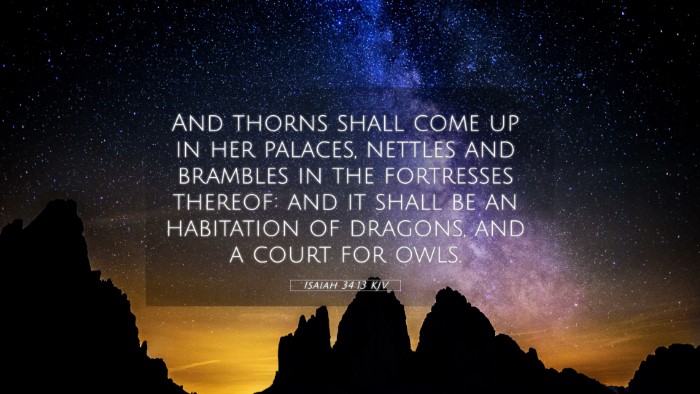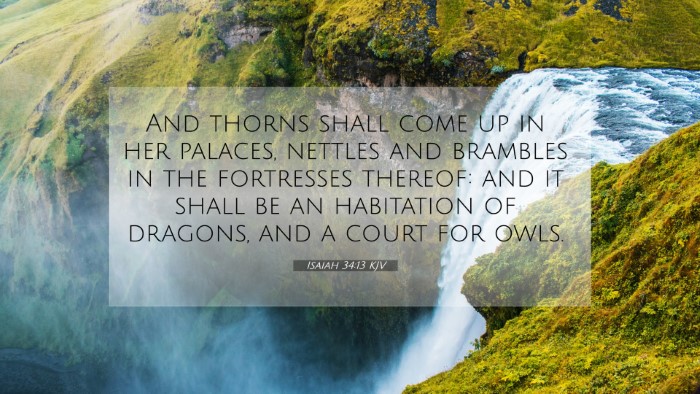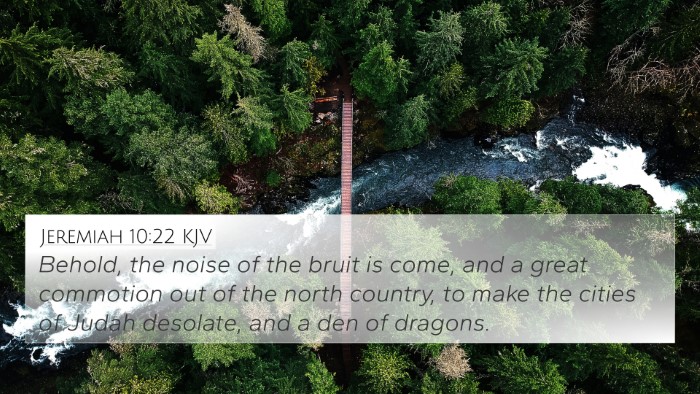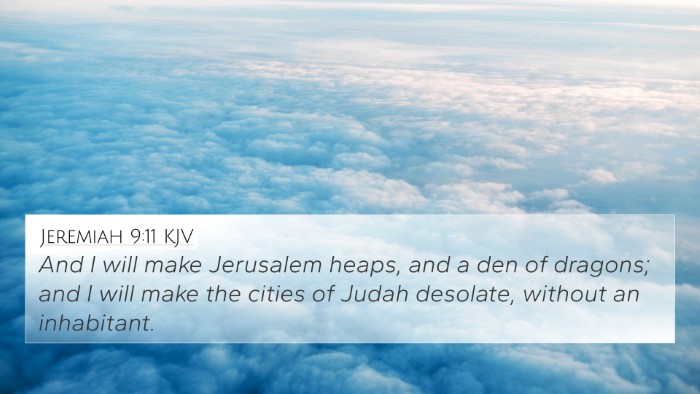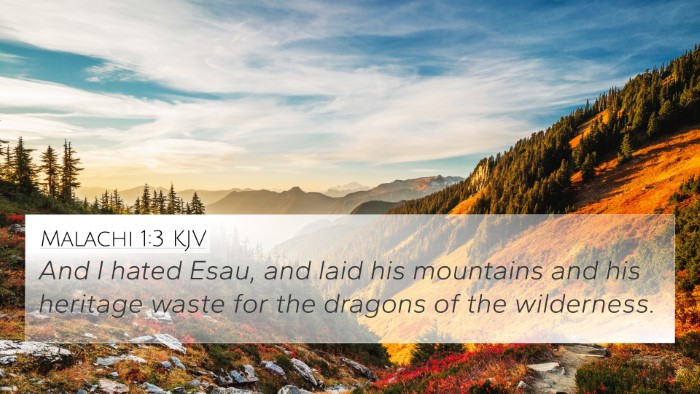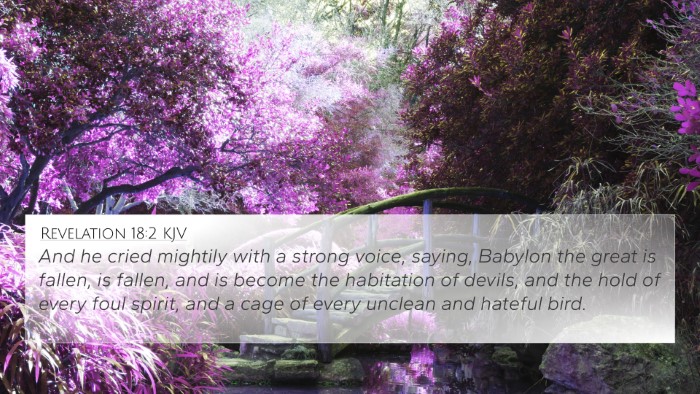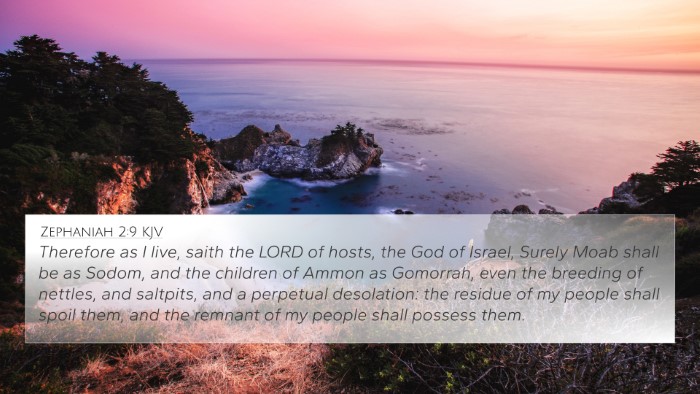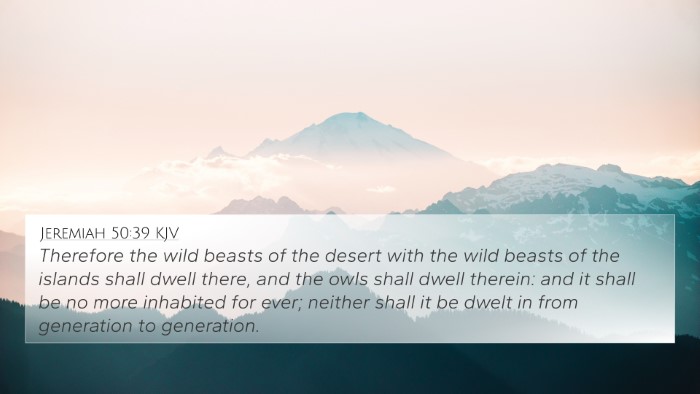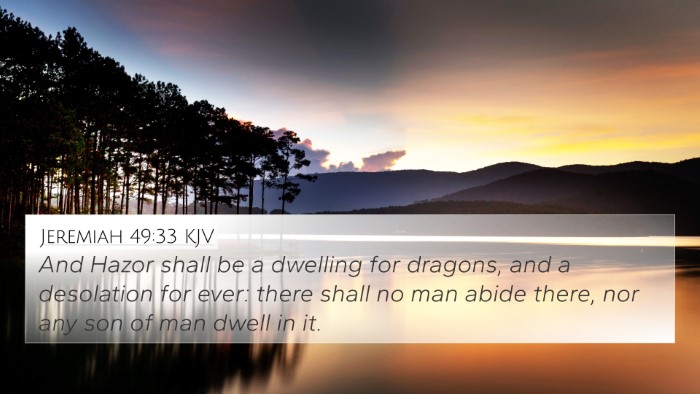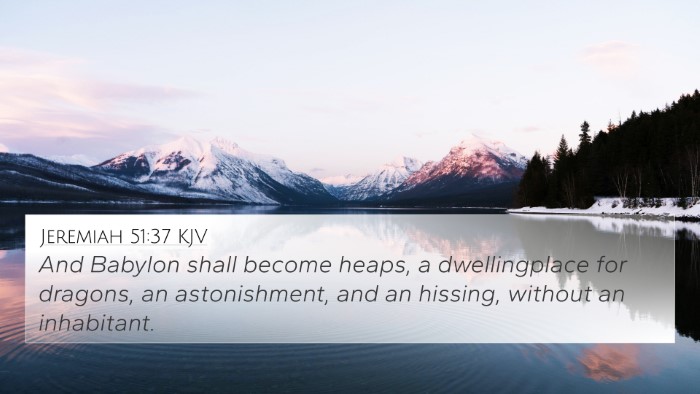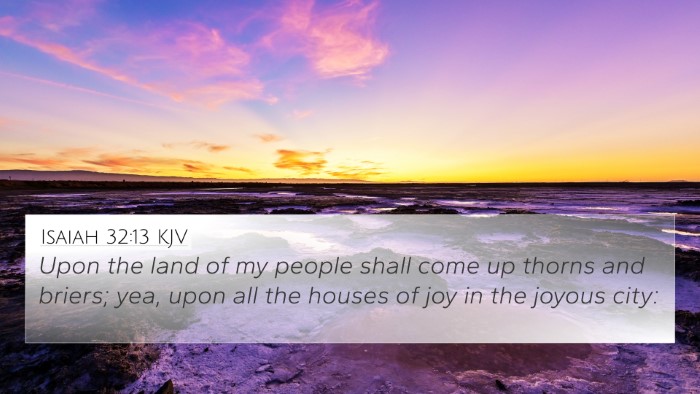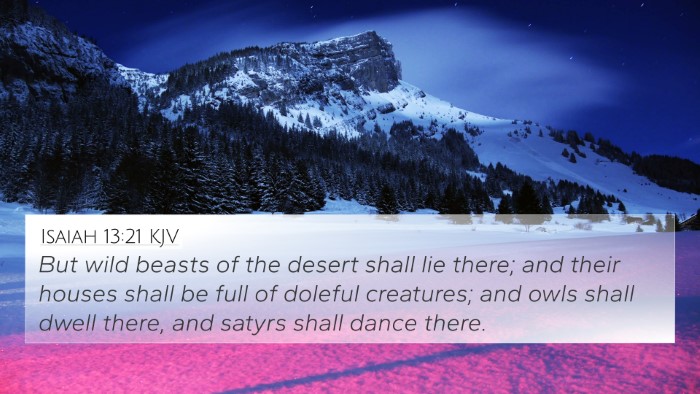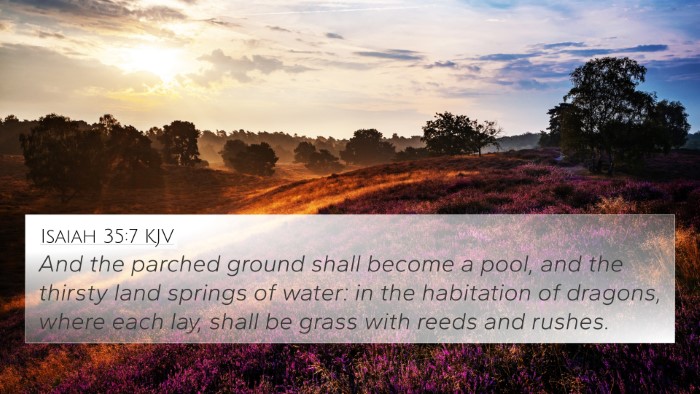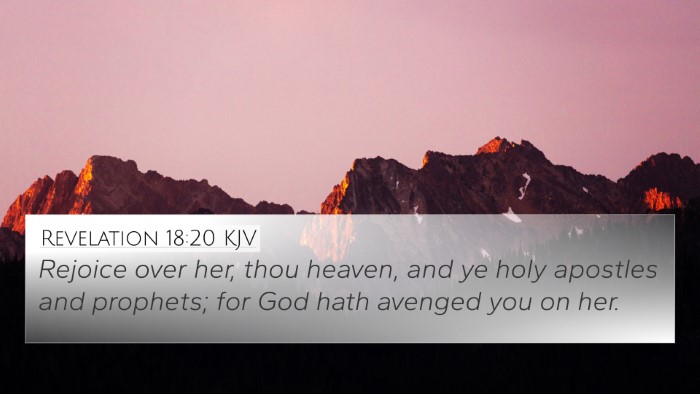Understanding Isaiah 34:13
In Isaiah 34:13, the scripture prophesies the desolation of Edom, predicting a severe transformation of its landscape due to divine judgment. This verse reads: "And thorns shall come up in her palaces, nettles and brambles in the fortresses thereof: and it shall be an habitation of dragons, and a court for owls."
Summary of Insights
This verse signifies the complete ruin and abandonment of Edom, which represents not just a physical desolation but also a spiritual one, showcasing the consequences of turning away from God.
Commentary Insights
-
Matthew Henry:
Henry stresses the stark imagery presented here, indicating that the once proud and fortified cities will become overrun by wild and undesirable growth, symbolizing the degradation that follows divine disapproval.
-
Albert Barnes:
Barnes elaborates on the implications of such imagery, noting that the creatures mentioned—dragons and owls—depict an inhospitable environment that will characterize the region. He also draws connections to the justice of God in punishing nations for their sins.
-
Adam Clarke:
Clarke presents an eschatological perspective, reminding readers that Edom's fate reflects a broader divine principle: that pride and opposition to God will result in downfall and ruin.
Bible Verse Cross-References
This verse can be linked to various other scripture passages that deepen the understanding of its message. Below are some notable cross-references:
- Isaiah 34:4: "And all the host of heaven shall be dissolved, and the heavens shall be rolled together as a scroll..." - a warning about the cosmic repercussions of divine judgment.
- Jeremiah 49:17: "Also Edom shall be a desolation: every one that goeth by it shall be astonished..." - reinforcing the desolate condition of Edom.
- Ezekiel 25:13: "...I will also stretch out my hand upon Edom, and I will cut off man and beast from it..." - highlighting divine judgment manifesting in the land.
- Revelation 18:2: "And he cried mightily with a strong voice, saying, Babylon the great is fallen, is fallen..." - illustrating the final fate of those opposed to God.
- Micah 1:6: "Therefore I will make Samaria as a heap of the field, and as plantings of a vineyard..." - emphasizing that destruction can come upon cities that turn away from righteousness.
- Psalm 137:7: "Remember, O Lord, the children of Edom in the day of Jerusalem..." - indicating Edom's historical role in opposing God’s people.
- Isaiah 63:1: "Who is this that cometh from Edom, with dyed garments from Bozrah?" - addressing the consequences of Edom's pride and hostility toward Israel.
Connecting Themes and Concepts
Isaiah 34:13 serves as a pivotal verse that resonates with themes of divine judgment, the consequences of pride, and the eventual desolation that follows rebellion against God. By examining related verses, we explore the contextual links and thematic connections throughout the Bible.
Scriptural Cross-Referencing and Study Tools
For those interested in deeper study, utilizing tools for Bible cross-referencing can greatly enhance understanding. Consider the following:
- Bible Concordance: A helpful resource for finding specific themes and words across scripture.
- Bible Cross-Reference Guide: Provides insights into similar verses that share themes or messages.
- Cross-Referencing Bible Study Methods: Effective ways to study the Bible that highlight interconnections.
- Comprehensive Bible Cross-Reference Materials: Invaluable tools for both personal study and sermon preparation.
Conclusion
In summary, Isaiah 34:13 is more than just a prophetic utterance; it encapsulates a broader theological message about judgment, pride, and desolation. Through the study of this verse and its related passages, believers can gain profound insights into the character of God and the importance of faithfulness.

